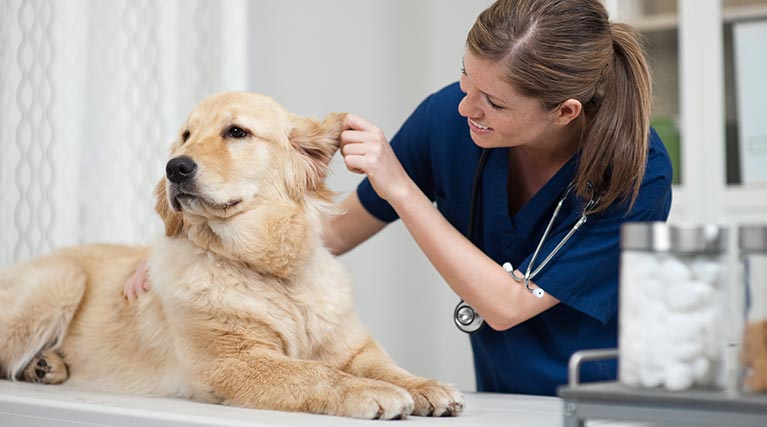Vet Ames: Offering Compassionate and Specialist Care for Your Family Pets' Health
Vet Ames: Offering Compassionate and Specialist Care for Your Family Pets' Health
Blog Article
Indicators It's Time to Go To Your Local Veterinarian
Comprehending when to look for veterinary treatment for your animal is crucial for maintaining their general health and wellness. Being attuned to these nuances can make a substantial difference in your pet's high quality of life.
Modifications in Consuming Routines
Changes in consuming behaviors can be an essential indication of a pet's general health. An abrupt rise or reduce in food usage can signify hidden medical concerns that need vet focus. For example, a significant decline in cravings may suggest gastrointestinal issues, oral concerns, or systemic health problems such as kidney disease or cancer cells. Conversely, an unanticipated increase in food intake may suggest metabolic conditions, diabetes, and even behavior adjustments.
It is crucial for animal owners to monitor their animals carefully and note any type of variances from their regular eating patterns. This includes not only the quantity of food consumed but also changes in the kind of food liked or hesitation to eat details products. Furthermore, pets might display adjustments in eating habits alongside various other indicators, such as lethargy, vomiting, or modifications in habits, which can additionally assist in identifying possible wellness problems.

Inexplicable Weight Reduction or Gain
Monitoring a pet dog's weight is as essential as observing their eating habits, as unusual weight loss or gain can show significant health issues. An obvious adjustment in weight, whether it be a considerable decrease or a rise, must not be forgotten. Such fluctuations can signify hidden medical problems such as diabetic issues, hyperthyroidism, kidney condition, or particular types of cancer cells.
In pets, unexpected weight loss can result from gastrointestinal problems, parasites, or oral troubles that impact their ability to eat. For felines, weight management can be especially concerning, as it may indicate a serious wellness concern that calls for timely focus. Alternatively, unusual weight gain can be linked to metabolic problems, over-eating, and even specific medicines that may alter hunger.
It is vital for family pet owners to check their family pets' weight on a regular basis and to note any type of modifications in their body condition. If you observe a consistent pattern of fat burning or gain over a short duration, it is recommended to consult your veterinarian. Early detection and treatment can cause much more effective therapy choices and much better health and wellness outcomes for your precious animal.

Modified Actions or Energy Levels
Often, pet dog proprietors might notice altered habits or energy degrees in their pets, which can be a crucial sign of underlying health and wellness concerns. Changes such as increased sleepiness, decreased rate of interest in play, or unusual aggression can represent that something is wrong. Family pets that usually show high energy levels might instantly come to be listless, while those that are typically tranquil may become hyperactive or agitated.
Furthermore, changes in everyday regimens, such as modifications in resting patterns, hunger, or social interactions, warrant attention. A canine that no longer greets its proprietor at the door or a pet cat that hides extra frequently could be experiencing distress. These behavioral shifts can originate from numerous elements, including health problem, discomfort, or psychological distress.

Indications of Discomfort or Pain
Identifying indicators of discomfort or discomfort in family pets is crucial for ensuring their health. Animals commonly display subtle changes in habits that may suggest they are experiencing discomfort. Common indications include articulations such as whining, roaring, or yelping, which can indicate distress. Furthermore, a pet dog might end up being a lot more taken out or display changes in their typical sociability, liking to separate themselves.
Physical indications are also vital to observe. Pet dogs might present altered grooming habits, such as excessive licking of a specific area or overlooking their self-care altogether. Hopping, reluctance to move, or difficulty in standing or resting are clear indicators of pain. Modifications in appetite or alcohol consumption habits may also recommend underlying pain, as family pets typically dislike food when they are unwell.
Additionally, expect unusual stances; for instance, a family pet may take on a stooped placement or seem to shield a specific location of their body. If you observe any of these indications, it is important to consult your veterinarian immediately. Early intervention can cause far better monitoring of pain and enhance your pet dog's high quality of life.
Persistent Signs And Symptoms or Illness
Consistent signs or disease in pets require prompt great site attention and needs to not be neglected. If your family pet shows recurring indicators such as vomiting, diarrhea, coughing, or sleepiness for greater than 24 hours, it is important to seek advice from a vet. These symptoms address can show underlying wellness concerns that might aggravate without prompt treatment.
Persistent problems, such as allergies, diabetes, or kidney disease, frequently present with recurring signs and symptoms that can considerably influence your animal's quality of life. Furthermore, modifications in appetite, weight-loss, or difficulty in movement are red flags that warrant additional investigation. Overlooking these indications can bring about issues that are a lot more expensive and challenging to treat.
It is also vital to monitor behavior modifications, as animals might not always show obvious physical signs and symptoms. If your animal is uncommonly withdrawn, nervous, or aggressive, this could indicate pain or pain that calls for veterinary evaluation.
Conclusion
In verdict, understanding of the signs indicating a requirement for vet treatment is crucial for keeping pet wellness. Regular tracking of a family pet's condition and timely activity in action to worrying indications are essential parts of responsible family pet ownership.
Changes in consuming practices can be a vital indicator of an animal's general health and wellness.It is important for pet proprietors to monitor their like this pet dogs carefully and keep in mind any type of variances from their typical eating patterns. Additionally, animals may show adjustments in consuming routines together with other signs, such as sleepiness, throwing up, or adjustments in actions, which can further help in determining prospective health concerns.
It is vital for family pet owners to monitor their animals' weight on a regular basis and to note any adjustments in their body problem. Routine surveillance of a family pet's condition and timely action in feedback to concerning signs are essential parts of accountable family pet ownership.
Report this page